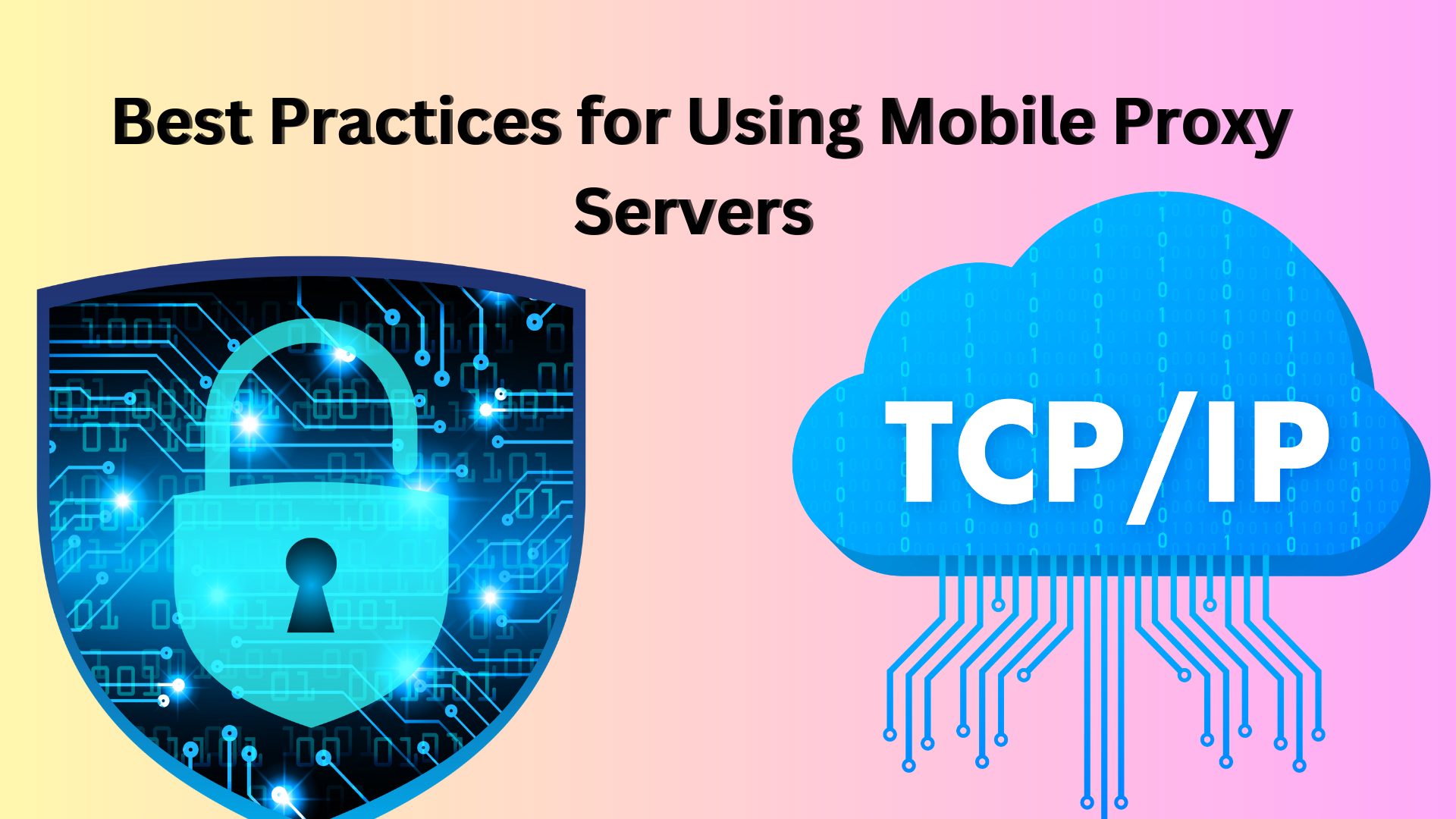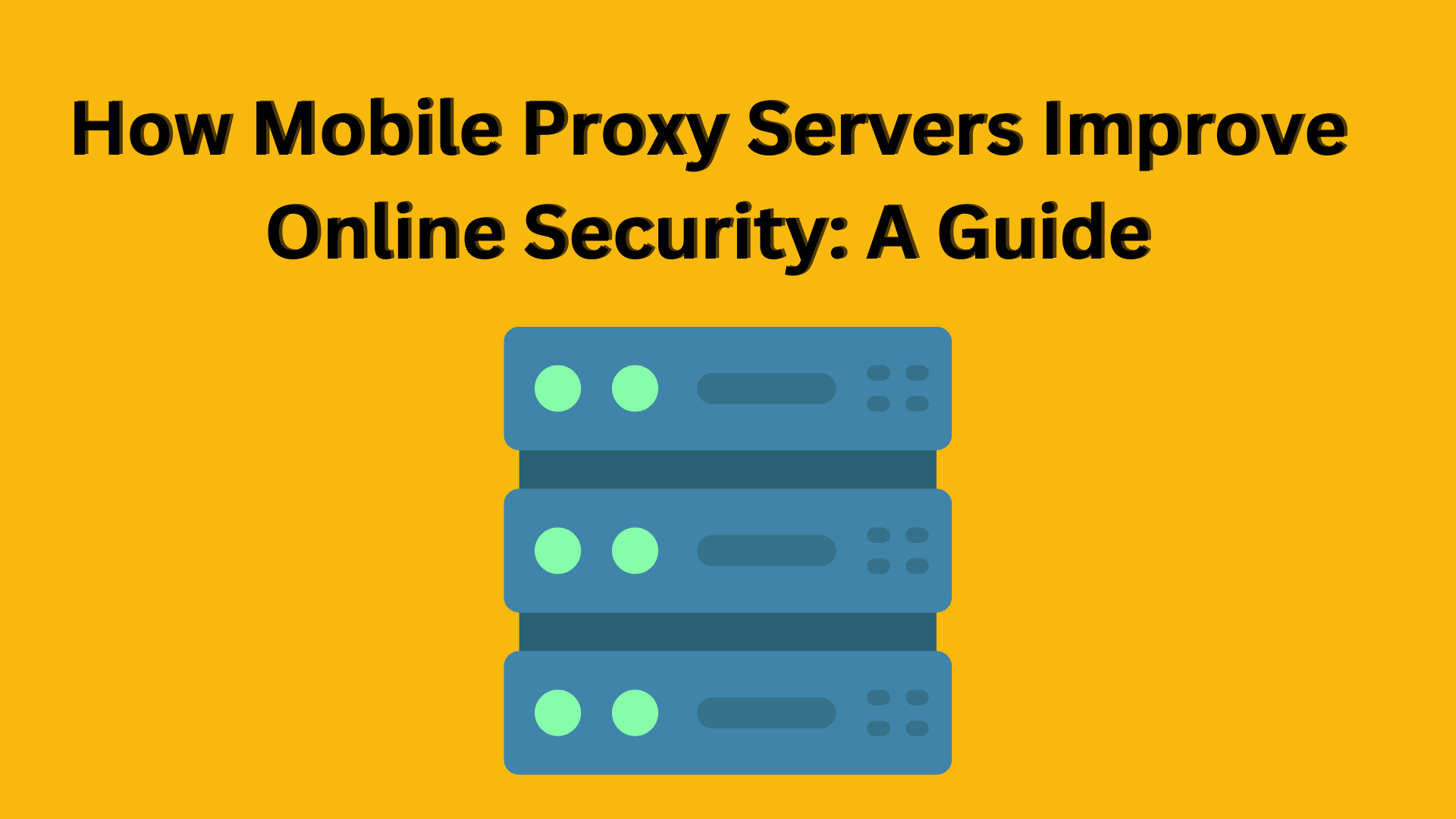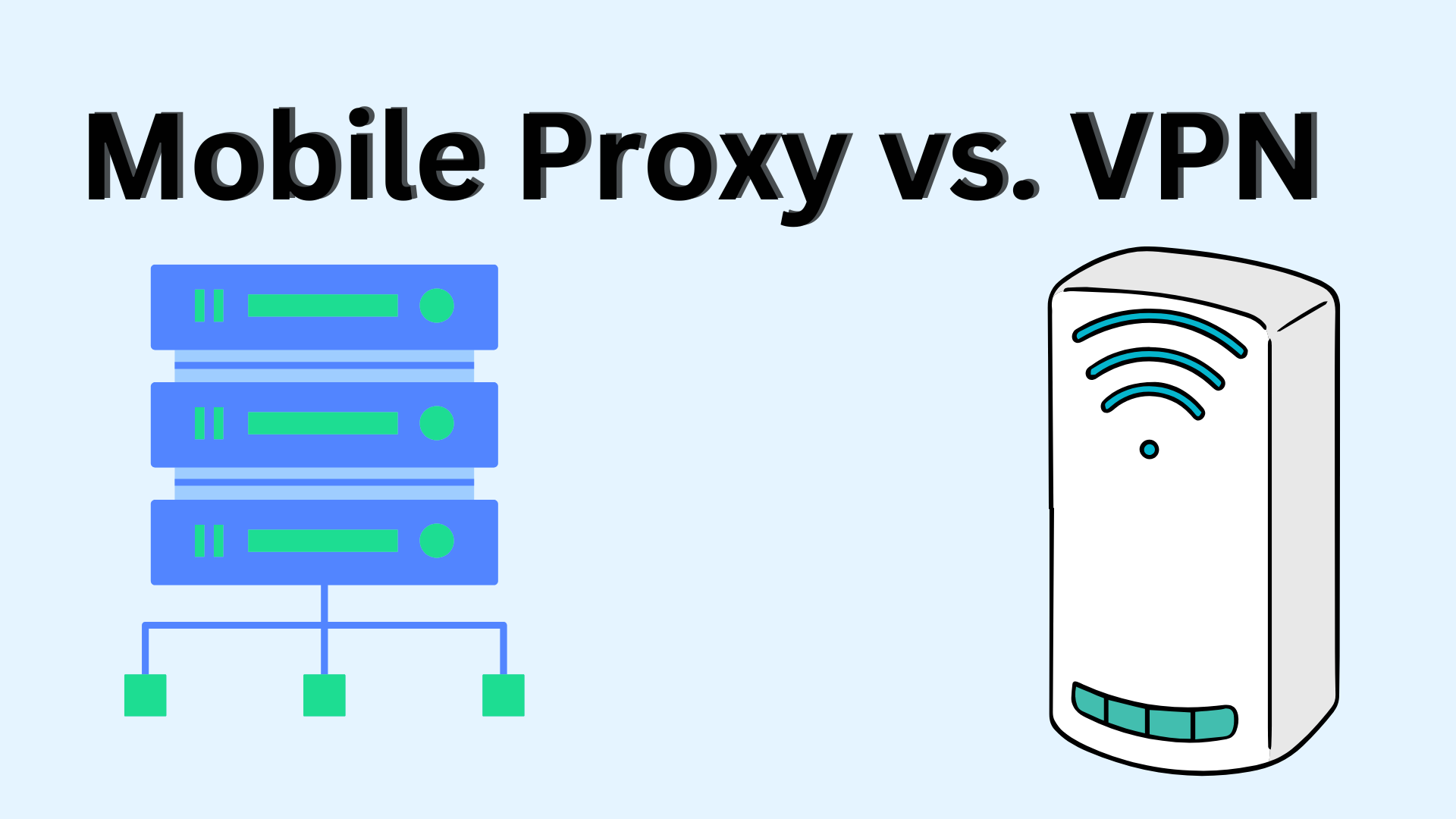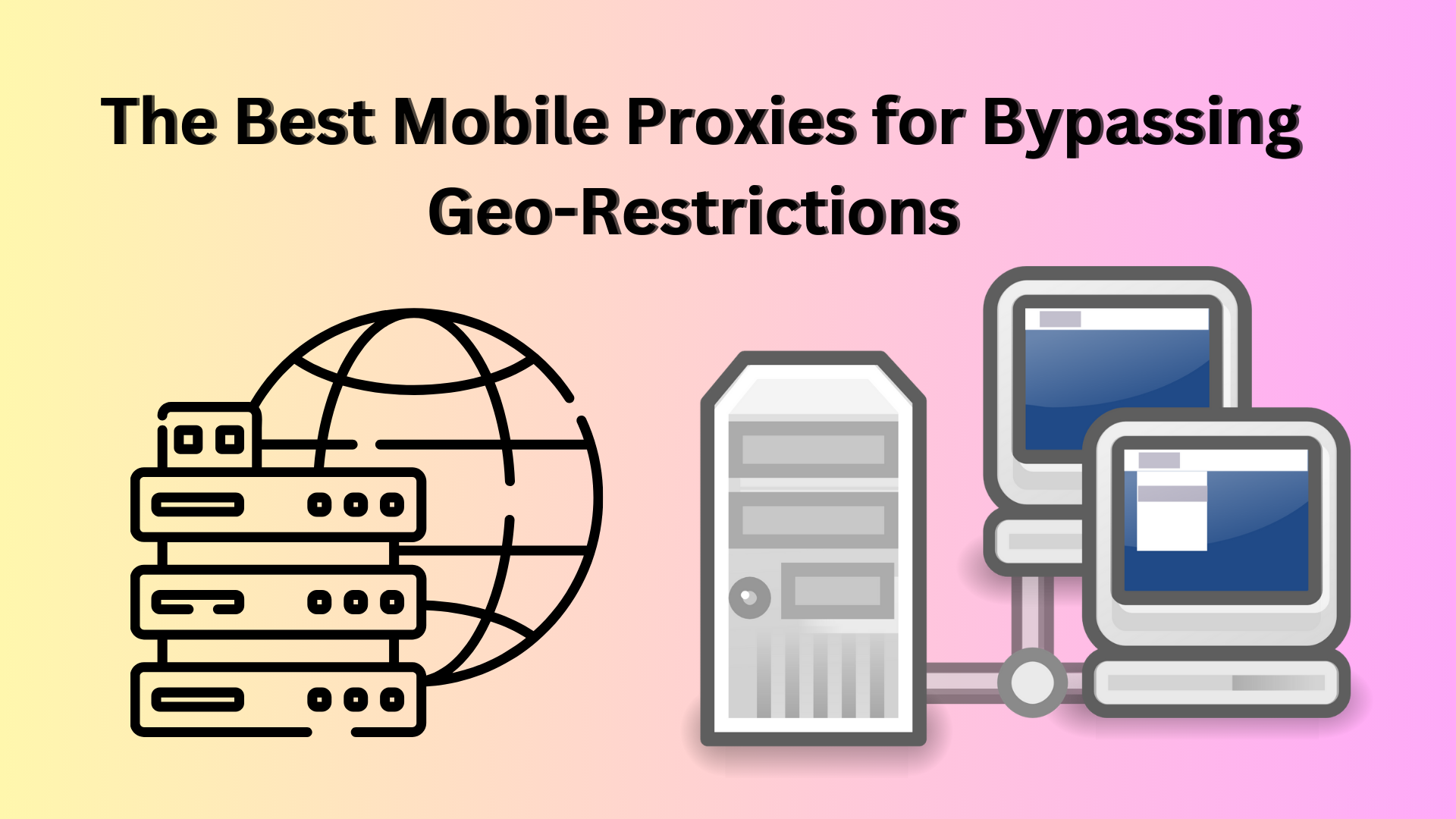What Are Mobile Proxy Servers?
Mobile proxy servers are intermediary servers that route your internet traffic through mobile devices connected to cellular networks. This process assigns your online activities a mobile IP address, which is less likely to be flagged or blocked by websites compared to traditional data center IPs. Mobile proxies are particularly useful for tasks that require high levels of anonymity, security, and geographical flexibility.
Importance of Mobile Proxies
In 2024, the digital landscape continues to evolve rapidly, with increasing emphasis on privacy, security, and mobile-first experiences. Mobile proxies have become indispensable for marketers, researchers, and everyday users who need to navigate this complex environment effectively. As mobile networks advance and online threats become more sophisticated, understanding how to use mobile proxies correctly is more important than ever.
Understanding the Basics of Mobile Proxy Servers
How Mobile Proxies Work
Mobile proxies work by routing your internet traffic through a mobile device, which could be a smartphone or a tablet connected to a mobile network. This mobile device acts as a gateway, masking your real IP address with a mobile IP provided by a cellular carrier. This makes your online activities appear as though they are coming from a regular mobile user, which can help you bypass geo-restrictions, avoid IP bans, and maintain anonymity.
Types of Mobile Proxies
- Residential Mobile Proxies: Use IP addresses assigned to real mobile users, making them highly reliable and less likely to be blocked.
- Shared Mobile Proxies: These proxies are used by multiple users simultaneously, which can be more cost-effective but may carry a higher risk of detection.
- Dedicated Mobile Proxies: Reserved for a single user, these proxies offer better performance and security, ideal for sensitive tasks.
Best Practices for Setting Up Mobile Proxy Servers
Choosing the Right Proxy Provider
The first step in setting up mobile proxies is selecting a reputable provider. Look for a provider that offers a large pool of mobile IPs, good customer support, and transparent pricing. Additionally, ensure the provider has servers in the geographical locations you need for your specific use cases.
Configuring Mobile Proxies for Optimal Performance
Once you have chosen a provider, proper configuration is key to achieving optimal performance. This includes setting up the correct IP rotation intervals, adjusting bandwidth usage, and ensuring that your proxy settings are compatible with the tools and applications you intend to use. Test your setup to confirm that the proxies are functioning correctly and delivering the desired results.
Ensuring Compatibility with Tools and Applications
Mobile proxies should be compatible with the tools and applications you use, whether for SEO, social media management, or web scraping. Make sure that your software supports proxy integration and that you configure it to work seamlessly with your mobile proxies. This might involve setting up proxy authentication, configuring IP whitelists, or fine-tuning network settings.
Maximizing Security and Privacy with Mobile Proxies
Implementing Strong Authentication Methods
To secure your mobile proxy setup, use strong authentication methods such as username and password authentication or IP whitelisting. This prevents unauthorized access to your proxies and ensures that only approved devices can use them.
Using Encryption and VPNs Alongside Proxies
For enhanced security, consider using encryption protocols like HTTPS or SSL/TLS to secure the data transmitted through your proxies. Additionally, combining mobile proxies with a VPN can provide an extra layer of privacy by encrypting all traffic and further masking your IP address.
Regularly Monitoring and Updating Proxy Configurations
Regularly monitor your proxy usage to detect any unusual activity or performance issues. Update your proxy settings and software to protect against new security threats and to ensure optimal performance. This includes applying patches, rotating IPs, and reviewing access logs.
Effective Management of Multiple Mobile Proxies
Rotating IP Addresses to Avoid Detection
To avoid detection and potential bans, it’s essential to rotate your mobile proxy IP addresses regularly. IP rotation makes it harder for websites to track your activities and associate them with a single IP address. Use automation tools to manage IP rotation efficiently and to minimize manual intervention.
Managing Data Usage Efficiently
Mobile proxies can consume significant amounts of data, especially when used for tasks like web scraping or automated testing. Manage data usage by setting limits, optimizing bandwidth, and choosing proxies with data plans that match your needs. Monitor your usage to avoid unexpected charges or slowdowns.
Automating Proxy Management Tasks
Automation tools can help streamline the management of multiple mobile proxies. These tools can handle tasks such as IP rotation, data usage monitoring, and performance tracking, allowing you to focus on your core activities without worrying about proxy maintenance.
Legal and Ethical Considerations
Complying with Local and International Laws
When using mobile proxies, it’s crucial to comply with all relevant laws and regulations. This includes data protection laws, copyright regulations, and any specific rules governing the use of proxies in your region. Ignorance of the law is not a defense, so it’s essential to stay informed and ensure your activities are lawful.
Understanding Platform Policies and Terms of Service
Social media platforms, search engines, and other online services often have strict terms of service regarding the use of proxies. Violating these terms can lead to account bans or other penalties. Make sure you understand the policies of the platforms you interact with and use mobile proxies in a way that aligns with their rules.
Ethical Use of Mobile Proxies in Marketing and Research
Ethical considerations are just as important as legal ones. Use mobile proxies responsibly, especially in marketing and research. Avoid practices that could be considered deceptive, such as manipulating ad clicks or creating fake accounts. Ethical proxy use helps maintain the integrity of your work and avoids damaging your reputation.
Troubleshooting Common Issues
Addressing Connectivity Problems
Connectivity issues can arise due to incorrect proxy settings, network congestion, or issues with the proxy provider. Troubleshoot these problems by checking your configurations, restarting your devices, or contacting your provider for support. Regular testing can help identify and resolve issues before they impact your activities.
Avoiding IP Blocks and Bans
To avoid IP blocks, ensure that your proxy usage patterns mimic those of regular users. This includes limiting the number of requests you make in a short period and rotating IPs frequently. If you do encounter a block, switch to a different IP or proxy server and review your usage patterns to prevent future issues.
Resolving Performance Bottlenecks
Performance bottlenecks can slow down your activities and reduce the effectiveness of your mobile proxies. These issues can be caused by overloaded proxy servers, high data usage, or network latency. Address these problems by optimizing your proxy configurations, upgrading to a higher-tier service, or distributing your activities across multiple proxies.
The Future of Mobile Proxy Usage
Adapting to 5G and Next-Generation Networks
As 5G networks become more widespread, mobile proxies will need to adapt to these faster and more reliable connections. This will likely involve upgrading infrastructure, optimizing proxies for 5G, and taking advantage of the enhanced capabilities offered by next-generation networks.
Integrating AI for Smarter Proxy Management
AI and machine learning will play an increasingly important role in mobile proxy management. AI-driven tools can optimize IP rotation, predict and prevent blocks, and manage data usage more efficiently. As these technologies evolve, they will make using mobile proxies easier and more effective.
The Role of Mobile Proxies in Emerging Markets
In emerging markets, where mobile internet usage is growing rapidly, mobile proxies will become even more valuable. Businesses looking to expand into these regions will rely on mobile proxies to navigate local networks, access region-specific content, and engage with new audiences. This will drive demand for mobile proxies with robust support for emerging markets.
Conclusion
Using mobile proxy servers effectively in 2024 requires a combination of technical know-how, strategic planning, and adherence to best practices. By choosing the right provider, optimizing your configurations, and staying compliant with legal and ethical standards, you can maximize the benefits of mobile proxies while minimizing risks. As the digital landscape continues to evolve, staying informed and adaptable will be key to successfully leveraging mobile proxies for your online activities.
FAQs
Can mobile proxies be used for web scraping?
Yes, mobile proxies are commonly used for web scraping because they provide a high level of anonymity and are less likely to be blocked by websites compared to data center proxies.
How do I know if my mobile proxy is working correctly?
You can test your mobile proxy by visiting websites that display your IP address and location. If the IP and location match the proxy you’ve set up, it’s working correctly.
Are there any risks associated with using mobile proxies?
While mobile proxies offer many benefits, there are risks, such as potential IP blocks, data security issues, and legal implications. These risks can be mitigated by following best practices and using reputable proxy providers.





